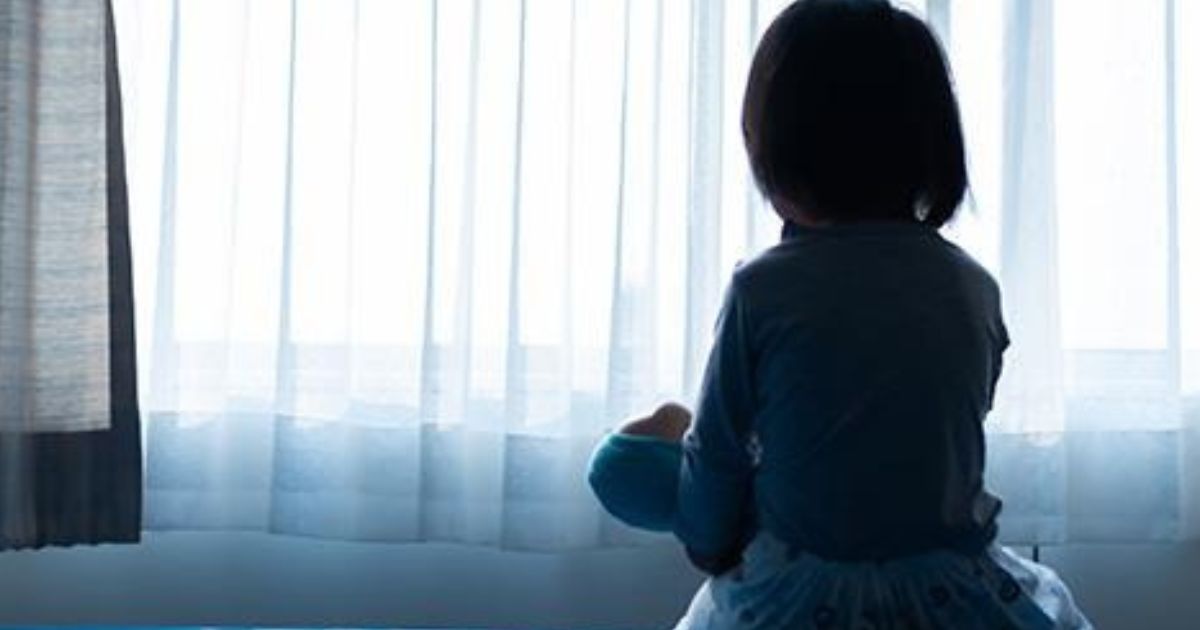A surging number of “ghost babies” has plagued South Korea recently after local governments started thorough probes into the cases of undocumented children. With each case solved, an unimaginable depravity of many parents was laid bare, horrifying the country.
Image used for illustrative purposes only | iStockPhotos
In one of the most recent cases, the Incheon Metropolitan Police Agency had detained a woman in her 40s on suspicions of abandoning her baby girl’s body. According to the woman’s testimony, the child died at home a day after her birth, and she buried the body in a vegetable garden owned by her mother in 2016.
The accused woman leaving a vegetable garden in Gimpo, Gyeonggi, where she allegedly dumped the body of her one-day-old daughter in 2016 | Yonhap
In another case, police in Yongin, Gyeonggi province, also detained a father and a grandmother the same day, suspected of murdering a newborn and abandoning the body in 2015. The father, a man in his 40s, allegedly killed his baby boy and buried the body on a hill in Yongin.
Police searching for the body of the baby boy suspected to have been buried on a hill in Yongin | Yonhap
These are just two out of the overwhelming number of cases related to ghost babies or unregistered newborns that have been reported after the Board of Audit and Inspection (BAI) started rigorous audits to track unregistered newborns through local authorities last year. In 2023, BAI said that out of the 2.6 million babies born between 2015 and 2022, approximately 2,236 don’t have any record of registration. This, in turn, made it difficult for the government to confirm whether these infants were dead or alive.
Each day, local police stations receive hundreds of reports. According to the National Police Agency, they received as many as 664 reports in a day in 2023, indicating the urgency of this operation.
But why are so many South Korean parents killing off their children at such an alarming rate?
While infanticide, in no way, is uniquely a South Korean issue, the typical sociopolitical construction of the country is said to be a significant contributor. According to a report by The Korea Herald, the ghost baby crisis underlines some critical issues in the country, including its lack of policies to support childcare and social taboos related to maternity.
Researchers have cited the lack of proper sex education and access to contraceptives as the first hurdle in battling infanticide in South Korea. Then comes the social taboo surrounding unwed single mothers. According to Park Myung Sook, a professor at Sangji University, this demographic is linked to most of the infanticide cases. Apart from the taboo, the soaring cost of rearing a child in South Korea is also pointed out as one of the culprits.
Another major factor in this phenomenon is the lack of access to abortions. In April 2019, the Constitutional Court ruled that the ban on abortion, which was in place since 1953, was unconstitutional while allowing for punishment depending on specific circumstances. However, when the Moon Jae In government brought a bill proposing to permit abortion up to 14 weeks into pregnancy, it was met with hostile opposition from powerful religious organizations. It was never passed by the National Assembly.
The lack of proper legislation regarding abortion is said to have directly increased a rise in abortion pills and surgical operations acquired or performed through illegal and unsupervised routes. It is, then, one of the worst offenders in the “ghost babies” tragedy.
Instead of these researched opinions, the National Assembly zeroed down on changing policies related to birth registration to battle the crisis. It passed a revision to the Act on Registration of Family Relations in June 2023, requiring workers at medical institutions to report newborns to the local administration within 14 days of birth.
The scheme, however, drew backlash from several critics, who said it would worsen the circumstances for single mothers and unwed women as they fear that the record of their giving birth in the state system could negatively affect them when trying to land a job.
With no near solution in sight, the unfortunate tragedy of “ghost babies” continues to deface an ugly side of society — but is it the sheer chutzpah of the parents or a more profound systematic failure?




